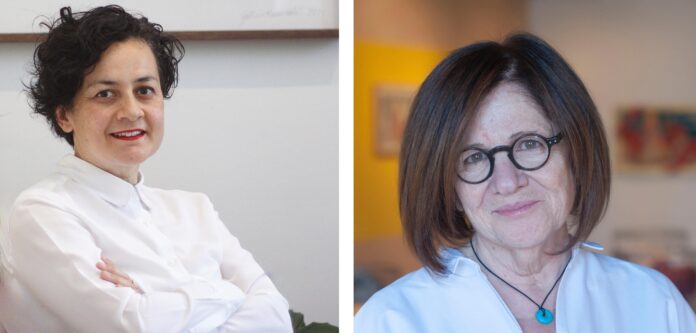The curator of the Turkish Pavilion at the next Venice Biennale, Esra Sarigedik Öktem, resigned yesterday, 14 August, citing the treatment of her “dear friend and colleague Defne Ayas” by the Istanbul Foundation For Culture and the Arts (IKSV) as the reason, as well as the need to be “vigilant” about “avoiding conflicts [of interest] that may arise.” Öktem is a curator and art dealer whose gallery represents Gülsün Karamustafa, the artist and filmmaker chosen by the IKSV for the Turkish pavilion at the Venice Biennale next year.
On 10 August, The Art Newspaper reported that the IKSV, which administers both the Istanbul Biennial and the Turkish Pavilion at the Venice Biennale, had rejected the recommendation of its own advisory panel, which had selected Ayas, a Turkish-born, Berlin-based curator, to organise the next edition of the Istanbul Biennial opening in September 2024.
Instead, the IKSV appointed Iwona Blazwick in Ayas’s place. Blazwick, a former director of the Whitechapel Gallery in London, was a member of the biennial advisory panel at the time of her selection. Her appointment raises concerns about major conflicts of interest at the IKSV.
Another potential conflict of interest was the selection of Esra Sarigedik Öktem to curate the Turkish pavilion in Venice next year. Öktem was chosen by the artist selected to represent Turkey in Venice, Gülsün Karamustafa.
In a post on instagram explaining her reasons for resigning, Öktem addressed the potential conflict head on: “As the professional representative of Gülsün Karamustafa, and founding director of [the gallery] BuroSarigedik, I wanted to avoid any conflict of interest that my new role as curator might present. As such, my team and I have reorganised the workflow of the office, and redefined my role in a way that would keep me separated from the day-to-day operations of the business side of representing Gülsün Karamustafa,” she wrote.
The practices for the selection of artists and curators for national pavilions in Venice vary. Like Turkey, some countries select artists and then let the artists either choose their own curator or have a major say in the selection. Other countries such as Nigeria and Benin, which is participating in the Venice Biennale next year for the first time, have appointed curators or curatorial teams and entrusted the selection of artists to them.
It is, however, highly unusual for a national pavilion to be curated by an artist’s own dealer; the task is most often assigned to museum or independent curators.
In her instagram statement, Öktem noted that “recent events” involving Ayas have “highlighted the need for a more transparent selection process…Developments of the last few days have led me to re-think my decisions; not just on a professional level, but as an individual with a keen awareness of the precedents and legacies we leave behind for future generations.”
“Even though we have already undergone major changes at BuroSarigedik on both leadership and operational levels, I have decided that I need to be even more vigilant about avoiding conflicts that may arise in ways that I cannot foresee at the moment,” she wrote.
Vasif Kortun, a writer and curator based in Istanbul, has organised two editions of the Istanbul Biennial as well as the first Turkish pavilion in Venice in 2007 on the invitation of overall biennale curator Robert Storr. Commenting on the resignation of Öktem, he said: “Esra, a colleague and a very close friend, was chosen by Gülsün Karamustafa. Still, she also happens to be the director of a not-so-commercial but indeed for-profit institution and effectively represents Gülsün. Esra’s origins are in the non-profit sector, and she was dying to do the exhibition and personally withdrew from commercial activity until the end of the Venice show, but it was not a wise decision given the report card of IKSV. We are judged on days like this,” Kortun says.
























